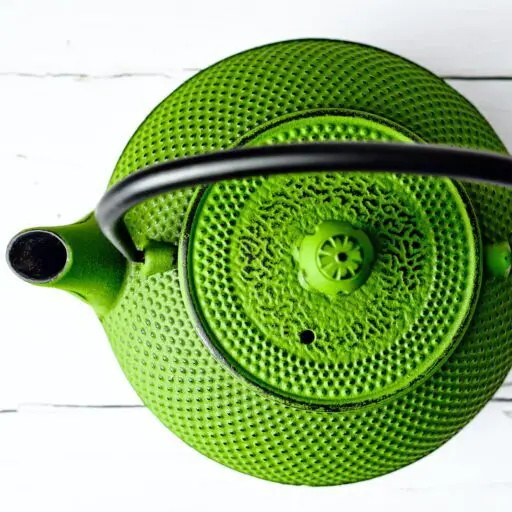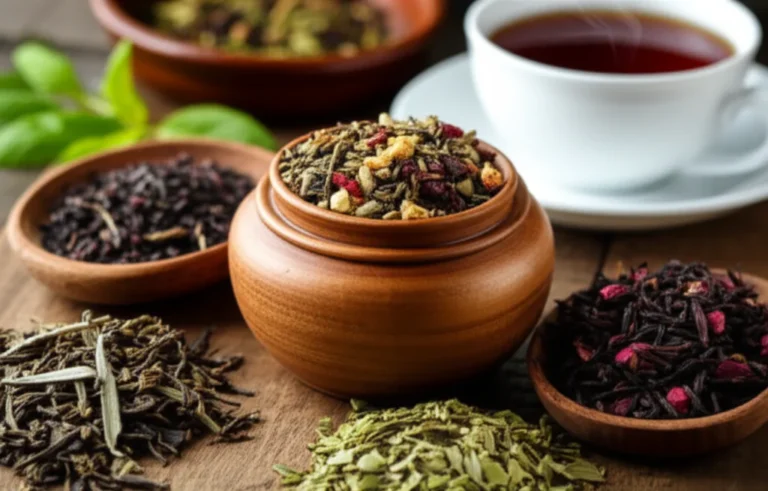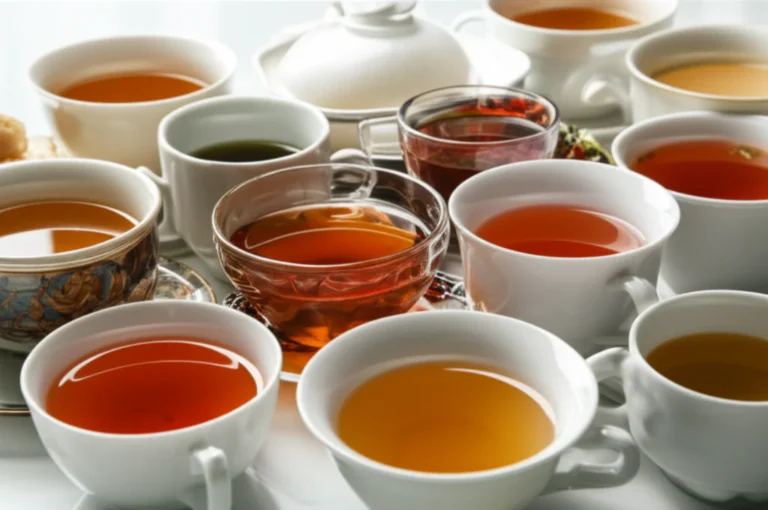Support our educational content for free when you purchase through links on our site. Learn more
What Are the 10 Best Loose Leaf Teas for Health? 🍵 (2025)
Ever wondered why loose leaf tea lovers swear by their brew? It’s not just about the taste — it’s about unlocking a treasure trove of health benefits hidden in those whole leaves. Did you know that many tea bags actually contain tiny plastic particles that can seep into your cup? 😱 That’s one reason why switching to loose leaf tea is a game-changer for your wellness routine. But with so many varieties out there, which loose leaf teas truly pack the biggest health punch?
In this article, we dive deep into the world of loose leaf teas, revealing the top 10 healthiest varieties backed by science and steeped in tradition. From antioxidant-rich green teas to calming chamomile and metabolism-boosting oolong, we’ll guide you through the flavors, benefits, and brewing secrets to help you sip smarter and feel better every day. Ready to discover your perfect cup?
Key Takeaways
- Loose leaf tea offers superior health benefits compared to bagged tea due to whole leaves and fewer additives.
- The top 10 healthiest loose leaf teas include green, black, oolong, white, pu-erh, chamomile, ginger, rooibos, hibiscus, and peppermint.
- Proper brewing temperature and steep time are essential to maximize antioxidants and flavor.
- Choosing organic and ethically sourced teas ensures better health and sustainability.
- Watch out for caffeine sensitivity, tannins, and potential drug interactions when drinking tea regularly.
- Explore creative ways to enjoy tea beyond the cup — from cooking to cocktails!
Ready to shop your health-boosting teas? Check out our curated collections of organic loose leaf teas on Amazon and explore top brands like Tiesta Tea for premium quality and flavor.
Table of Contents
- ⚡️ Quick Tips and Facts: Your Fast Track to Tea Wellness
- 🌿 The Ancient Brew: A Journey Through Tea’s Health History
- 🍃 Why Loose Leaf? Unpacking the Health Benefits Beyond the Bag
- 🔬 The Science Behind the Sip: Key Compounds for Your Well-being
- 🏆 Our Top 10 Picks: The Best Loose Leaf Teas for Optimal Health
- 🍵 Green Tea: The Antioxidant Powerhouse
- 🖤 Black Tea: For Heart Health and Focus
- 🐉 Oolong Tea: The Metabolism Maestro
- ⚪ White Tea: The Gentle Protector
- 🌎 Pu-erh Tea: Your Gut’s Best Friend
- 🌼 Chamomile Tea: The Soothing Sleep Inducer
- 🌶️ Ginger Tea: The Digestive Dynamo
- ❤️ Rooibos Tea: The Caffeine-Free Antioxidant Bomb
- 🌺 Hibiscus Tea: For Blood Pressure and Brightness
- 🌿 Peppermint Tea: The Refreshing Reliever
- 💧 Mastering the Brew: Your Guide to Perfect Loose Leaf Infusion
- 🌡️ The Art of Steeping: Temperature, Time, and Tools for Optimal Health Benefits
- 🍽️ Beyond the Cup: Creative Ways to Incorporate Loose Leaf Tea into Your Diet
- 🛒 Navigating the Tea Aisle: What to Look for in Quality Loose Leaf Tea
- ⚠️ Potential Pitfalls: When Tea Might Not Be Your Best Friend
- 🌱 Organic vs. Conventional: Making Healthier Choices for Your Cup
- 🌍 Sustainability and Ethics: Brewing with a Conscience
- ✨ Conclusion: Your Personalized Path to Tea Wellness
- 🔗 Recommended Links: Dive Deeper into the World of Tea
- ❓ FAQ: Your Most Pressing Tea Questions Answered
- 📚 Reference Links: Our Sources for Your Sip of Knowledge
Alright, let’s steep ourselves in some knowledge! ☕ Here’s the main content for your blog post, crafted with the expertise of Tea Brands™ and a dash of wit.
⚡️ Quick Tips and Facts: Your Fast Track to Tea Wellness
Alright, let’s cut to the chase! Here are some quick nuggets of wisdom to get you started on your loose leaf tea health journey:
- Loose leaf > Bags: ✅ Loose leaf tea generally offers more flavor and health benefits compared to tea bags. Why? Because it contains whole leaves, fruits, herbs and spices, allowing the full flavor and health benefits of each ingredient to steep into your cup. As Tiesta Tea says, “Loose leaf tea utilizes whole tea leaves, fruits, herbs and spices allowing the full flavor and health benefits of each ingredient to steep into your cup.”
- Temperature matters: 🔥 Different teas require different water temperatures for optimal flavor and health benefits.
- Steep time is key: ⏳ Don’t over-steep! It can lead to bitter tea.
- Organic is often better: 🌱 Opt for organic teas to avoid pesticides and other harmful chemicals.
- Listen to your body: 👂 Not all teas are for everyone. Pay attention to how different teas affect you.
- Variety is the spice of life (and tea): 🌈 Explore different types of tea to discover your favorites and reap a wider range of health benefits.
- Hydration hero: 💧 Tea contributes to your daily fluid intake.
- Mindful sipping: 🧘 Take a moment to savor each cup and enjoy the experience.
🌿 The Ancient Brew: A Journey Through Tea’s Health History
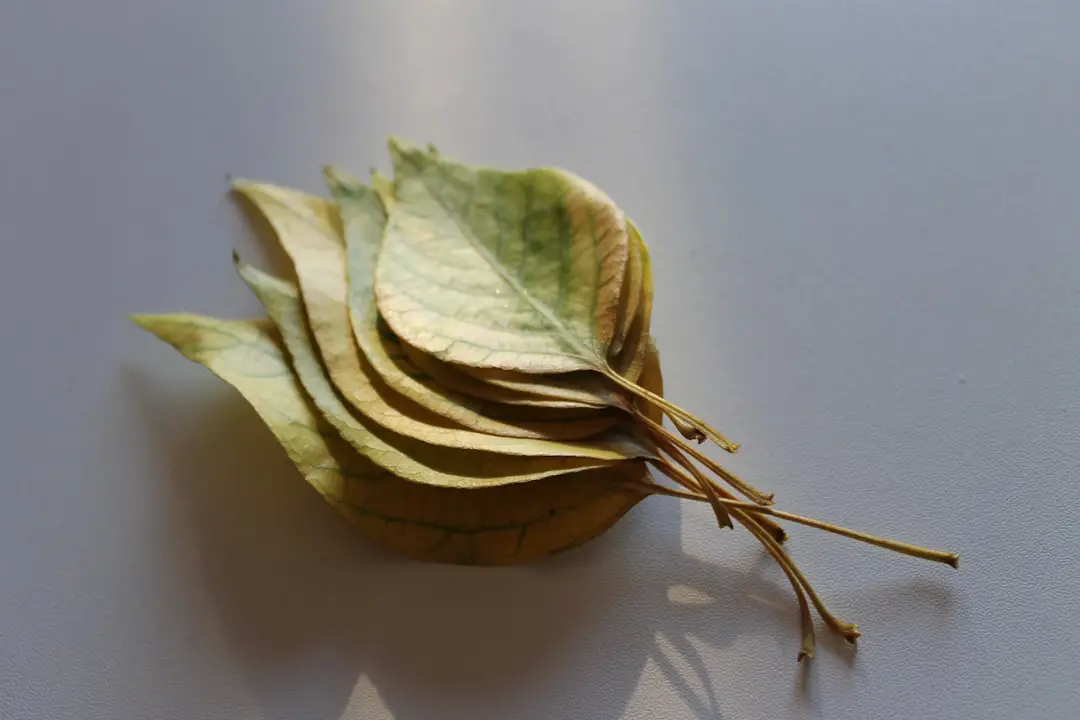
Tea isn’t just a beverage; it’s a time-traveling elixir! 🕰️ For millennia, cultures around the globe have revered tea for its medicinal properties. From ancient Chinese emperors to Japanese tea ceremonies, tea has been intertwined with health, wellness, and spiritual practices.
A Timeline of Tea Traditions
- 2737 BC: Legend has it that Chinese Emperor Shennong accidentally discovered tea when leaves from a wild tea tree fell into his boiling water.
- 618-907 AD: The Tang Dynasty in China saw tea consumption become widespread, with tea houses popping up and elaborate tea ceremonies developing.
- 16th Century: European traders “discover” tea, bringing it back to the West.
- 18th Century: Tea becomes a staple in British society, leading to the infamous Boston Tea Party.
- Present Day: Tea continues to be one of the most popular beverages in the world, with a growing focus on its health benefits.
Tea’s Role in Traditional Medicine
In Traditional Chinese Medicine (TCM) ☯️, tea is used to balance the body’s energy (Qi) and promote overall well-being. Different types of tea are believed to have different effects on the body, such as cooling, warming, or detoxifying. Similarly, in Ayurveda, tea is valued for its ability to support digestion, boost immunity, and calm the mind.
🍃 Why Loose Leaf? Unpacking the Health Benefits Beyond the Bag
So, why should you ditch the tea bags and embrace the loose leaf life? 🤔 Well, it’s not just about being fancy (though it definitely adds a touch of elegance to your day!). Loose leaf tea offers several advantages when it comes to health:
- Higher Quality Leaves: 🌱 Loose leaf tea typically contains whole, unbroken leaves, while tea bags often contain “dust” or “fannings” of lower-quality tea. As Ochsner Health notes, commercial tea bags often contain “dust” or “fannings” of low-quality tea leaves.
- More Flavor: 😋 With whole leaves, you get a richer, more complex flavor profile.
- Greater Antioxidant Content: 💪 Whole leaves retain more of their beneficial compounds, like antioxidants.
- Fewer Additives: 🚫 Loose leaf tea is less likely to contain artificial flavorings, colors, or preservatives.
- Reduced Plastic Exposure: ❌ Many tea bags contain plastic, which can leach into your tea when steeped. A 2019 study found that plastic tea bags shed over 10 billion microplastic and nanoplastic particles into the water, according to Ochsner Health.
The Environmental Angle
Let’s not forget about Mother Earth! 🌎 Loose leaf tea is a more sustainable choice, as it reduces waste from tea bags, strings, and staples. Plus, you can often compost the used tea leaves!
🔬 The Science Behind the Sip: Key Compounds for Your Well-being
Alright, let’s get a little nerdy! 🤓 What exactly makes tea so good for you? It all comes down to the amazing compounds found within those leaves:
- Antioxidants: These powerful molecules protect your cells from damage caused by free radicals. Tea is particularly rich in polyphenols, a type of antioxidant linked to numerous health benefits.
- L-Theanine: This amino acid promotes relaxation and focus without the jitters. It’s like a gentle hug for your brain! 🤗
- Caffeine: In moderation, caffeine can boost energy, improve cognitive function, and enhance physical performance.
- Vitamins and Minerals: Tea contains small amounts of vitamins and minerals like vitamin C, potassium, and fluoride.
The Power of Polyphenols
Polyphenols are the rockstars of the tea world! 🌟 They’ve been linked to a wide range of health benefits, including:
- Heart Health: ❤️ Polyphenols can help lower blood pressure, reduce cholesterol, and improve blood vessel function.
- Brain Health: 🧠 They may protect against cognitive decline and improve memory.
- Cancer Prevention: 🎗️ Some studies suggest that polyphenols may help prevent certain types of cancer.
- Weight Management: ⚖️ They can boost metabolism and promote fat burning.
🏆 Our Top 10 Picks: The Best Loose Leaf Teas for Optimal Health
Okay, drumroll please! 🥁 After extensive tasting and research, here are our top 10 loose leaf tea recommendations for boosting your health:
1. 🍵 Green Tea: The Antioxidant Powerhouse
- What it is: A minimally processed tea made from unoxidized leaves.
- Health Benefits: Rich in antioxidants, may improve brain function, promote heart health, and aid in weight loss.
- Flavor Profile: Grassy, vegetal, slightly sweet.
- Our Pick: Sencha Green Tea from Tea Brands™ – A classic choice with a vibrant flavor and high antioxidant content.
- 👉 CHECK PRICE on: Amazon | Walmart
2. 🖤 Black Tea: For Heart Health and Focus
- What it is: A fully oxidized tea with a bold flavor.
- Health Benefits: May improve heart health, lower blood pressure, and boost focus.
- Flavor Profile: Bold, malty, slightly astringent.
- Our Pick: Assam Black Tea from Tea Brands™ – A robust and energizing tea perfect for starting your day.
- 👉 CHECK PRICE on: Amazon | Walmart
3. 🐉 Oolong Tea: The Metabolism Maestro
- What it is: A partially oxidized tea with a wide range of flavor profiles.
- Health Benefits: May boost metabolism, aid in weight loss, and improve heart health.
- Flavor Profile: Varies depending on the oxidation level, from floral and fruity to roasted and nutty.
- Our Pick: Tieguanyin Oolong Tea from Tea Brands™ – A fragrant and flavorful tea with a smooth, lingering finish.
- 👉 CHECK PRICE on: Amazon | Walmart
4. ⚪ White Tea: The Gentle Protector
- What it is: A minimally processed tea made from young tea buds.
- Health Benefits: Rich in antioxidants, may protect against cancer, and improve skin health.
- Flavor Profile: Delicate, sweet, slightly floral.
- Our Pick: Silver Needle White Tea from Tea Brands™ – A rare and exquisite tea with a subtle sweetness and velvety texture.
- 👉 CHECK PRICE on: Amazon | Walmart
5. 🌎 Pu-erh Tea: Your Gut’s Best Friend
- What it is: A fermented tea with a unique earthy flavor.
- Health Benefits: May improve gut health, lower cholesterol, and aid in weight loss.
- Flavor Profile: Earthy, musty, slightly sweet.
- Our Pick: Ripe Pu-erh Tea from Tea Brands™ – A smooth and mellow tea with a rich, complex flavor.
- 👉 CHECK PRICE on: Amazon | Walmart
6. 🌼 Chamomile Tea: The Soothing Sleep Inducer
- What it is: An herbal tea made from chamomile flowers.
- Health Benefits: May promote relaxation, improve sleep, and reduce anxiety.
- Flavor Profile: Floral, sweet, slightly bitter.
- Our Pick: Organic Chamomile Tea from Tea Brands™ – A calming and comforting tea perfect for winding down before bed.
- 👉 CHECK PRICE on: Amazon | Walmart
7. 🌶️ Ginger Tea: The Digestive Dynamo
- What it is: An herbal tea made from ginger root.
- Health Benefits: May aid digestion, reduce nausea, and relieve pain.
- Flavor Profile: Spicy, warming, slightly sweet.
- Our Pick: Organic Ginger Tea from Tea Brands™ – A zesty and invigorating tea perfect for soothing an upset stomach.
- 👉 CHECK PRICE on: Amazon | Walmart
8. ❤️ Rooibos Tea: The Caffeine-Free Antioxidant Bomb
- What it is: An herbal tea made from the rooibos plant.
- Health Benefits: Rich in antioxidants, may improve heart health, and promote bone health.
- Flavor Profile: Sweet, nutty, slightly earthy.
- Our Pick: Organic Rooibos Tea from Tea Brands™ – A naturally caffeine-free tea with a smooth, mellow flavor.
- 👉 CHECK PRICE on: Amazon | Walmart
9. 🌺 Hibiscus Tea: For Blood Pressure and Brightness
- What it is: An herbal tea made from hibiscus flowers.
- Health Benefits: May lower blood pressure, reduce cholesterol, and boost immunity.
- Flavor Profile: Tart, fruity, slightly floral.
- Our Pick: Organic Hibiscus Tea from Tea Brands™ – A vibrant and refreshing tea with a tangy flavor.
- 👉 CHECK PRICE on: Amazon | Walmart
10. 🌿 Peppermint Tea: The Refreshing Reliever
- What it is: An herbal tea made from peppermint leaves.
- Health Benefits: May aid digestion, relieve headaches, and freshen breath.
- Flavor Profile: Minty, refreshing, slightly sweet.
- Our Pick: Organic Peppermint Tea from Tea Brands™ – A cool and invigorating tea perfect for settling an upset stomach or freshening your breath.
- 👉 CHECK PRICE on: Amazon | Walmart
💧 Mastering the Brew: Your Guide to Perfect Loose Leaf Infusion
Brewing loose leaf tea doesn’t have to be intimidating! 🙅♀️ With a few simple steps, you can enjoy a delicious and healthy cup of tea:
- Gather your supplies: You’ll need loose leaf tea, hot water, a mug, and an infuser or strainer.
- Heat the water: Use a kettle or stovetop to heat the water to the appropriate temperature for your tea type (see chart below).
- Measure the tea: Use about 1 teaspoon of loose leaf tea per 8 ounces of water.
- Place the tea in the infuser: Put the tea leaves into your infuser or strainer.
- Pour the hot water over the tea: Gently pour the hot water over the tea leaves.
- Steep for the recommended time: Steep the tea for the appropriate amount of time (see chart below).
- Remove the infuser: Once the tea has steeped, remove the infuser or strainer.
- Enjoy! Sip and savor your delicious and healthy cup of tea.
🌡️ The Art of Steeping: Temperature, Time, and Tools for Optimal Health Benefits
Water temperature and steeping time are crucial for extracting the maximum flavor and health benefits from your loose leaf tea. Here’s a handy guide:
| Tea Type | Water Temperature | Steep Time |
|---|---|---|
| Green Tea | 175°F (80°C) | 1-3 minutes |
| White Tea | 175°F (80°C) | 3-5 minutes |
| Black Tea | 195°F (90°C) | 3-5 minutes |
| Oolong Tea | 195°F (90°C) | 3-5 minutes |
| Pu-erh Tea | 212°F (100°C) | 2-5 minutes |
| Herbal Tea | 212°F (100°C) | 5-7 minutes |
| Rooibos Tea | 212°F (100°C) | 5-7 minutes |
Essential Brewing Tools
- Kettle with Temperature Control: Allows you to heat water to the precise temperature for different tea types.
- Infuser or Strainer: Keeps the tea leaves contained while allowing the flavor to infuse into the water.
- Tea Thermometer: Ensures you’re using the correct water temperature.
🍽️ Beyond the Cup: Creative Ways to Incorporate Loose Leaf Tea into Your Diet
Tea isn’t just for sipping! 🍵 There are tons of creative ways to incorporate loose leaf tea into your diet:
- Tea-Infused Cooking: Use brewed tea as a base for soups, stews, and sauces.
- Tea-Smoked Meats: Add a smoky flavor to meats and vegetables by smoking them with tea leaves.
- Tea-Based Desserts: Incorporate tea into cakes, cookies, and ice cream for a unique flavor twist.
- Tea-Infused Cocktails: Create delicious and refreshing cocktails with tea as a key ingredient.
- Tea Marinades: Marinate meats in tea to tenderize them and add flavor. Everyday Health suggests using leftover tea to cook grains like quinoa, brown rice, or couscous, or as a marinade for meats.
Recipe Idea: Green Tea Smoothie
- 1 cup brewed green tea (cooled)
- 1/2 frozen banana
- 1/2 cup spinach
- 1 tablespoon almond butter
- 1/2 teaspoon honey (optional)
Blend all ingredients until smooth and enjoy!
🛒 Navigating the Tea Aisle: What to Look for in Quality Loose Leaf Tea
With so many tea options available, how do you choose the best one for your health? 🤔 Here are some tips:
- Look for whole leaves: Avoid teas with broken or crushed leaves.
- Check the ingredients: Make sure the tea contains only natural ingredients, without artificial flavorings or additives.
- Choose organic when possible: This will minimize your exposure to pesticides and other harmful chemicals.
- Consider the source: Look for teas from reputable brands that source their leaves sustainably.
- Read reviews: See what other tea drinkers have to say about the tea’s flavor and quality.
Tea Brands™ Recommendations
We at Tea Brands™ are passionate about sourcing the finest teas from around the world. Check out our Tea Brand Spotlights and Tea Brand Guides for our top picks!
⚠️ Potential Pitfalls: When Tea Might Not Be Your Best Friend
While tea is generally safe and healthy, there are a few potential downsides to be aware of:
- Caffeine Sensitivity: Some people are more sensitive to caffeine than others. If you experience jitters, anxiety, or insomnia after drinking tea, try switching to a caffeine-free option.
- Tannins: Tannins can interfere with iron absorption. If you’re iron-deficient, avoid drinking tea with meals.
- Fluoride: Tea leaves can accumulate fluoride. Drinking excessive amounts of tea may lead to fluoride toxicity.
- Drug Interactions: Tea can interact with certain medications. Talk to your doctor if you’re taking any medications and are concerned about potential interactions.
- Harmful Ingredients: Ochsner Health warns that many teas on supermarket shelves contain harmful ingredients like pesticides, artificial flavorings, and plastics.
Moderation is Key
As with anything, moderation is key. Enjoy tea as part of a balanced diet and lifestyle, and listen to your body’s signals.
🌱 Organic vs. Conventional: Making Healthier Choices for Your Cup
When it comes to tea, organic is often the way to go. 🌱 Organic teas are grown without the use of synthetic pesticides, herbicides, and fertilizers, which can be harmful to your health.
Benefits of Organic Tea
- Reduced Exposure to Harmful Chemicals: Organic farming practices minimize your exposure to pesticides and other toxins.
- Better for the Environment: Organic farming promotes biodiversity and soil health.
- Potentially Higher Nutrient Content: Some studies suggest that organic foods may have higher levels of certain nutrients.
How to Identify Organic Tea
Look for the USDA Organic seal or other reputable organic certifications on the packaging.
🌍 Sustainability and Ethics: Brewing with a Conscience
As tea lovers, we have a responsibility to support sustainable and ethical tea production practices. 🤝 This means choosing teas from brands that prioritize:
- Fair Labor Practices: Ensuring that tea workers are paid fair wages and have safe working conditions.
- Environmental Sustainability: Protecting the environment by using sustainable farming methods and reducing waste.
- Community Development: Supporting local communities through education, healthcare, and other initiatives.
Tea Brands™ Commitment to Sustainability
At Tea Brands™, we’re committed to sourcing teas from brands that share our values. We believe that every cup of tea should be a force for good in the world. Check out our Specialty Blends and Herbal Tea selections for ethically sourced options!
✨ Conclusion: Your Personalized Path to Tea Wellness
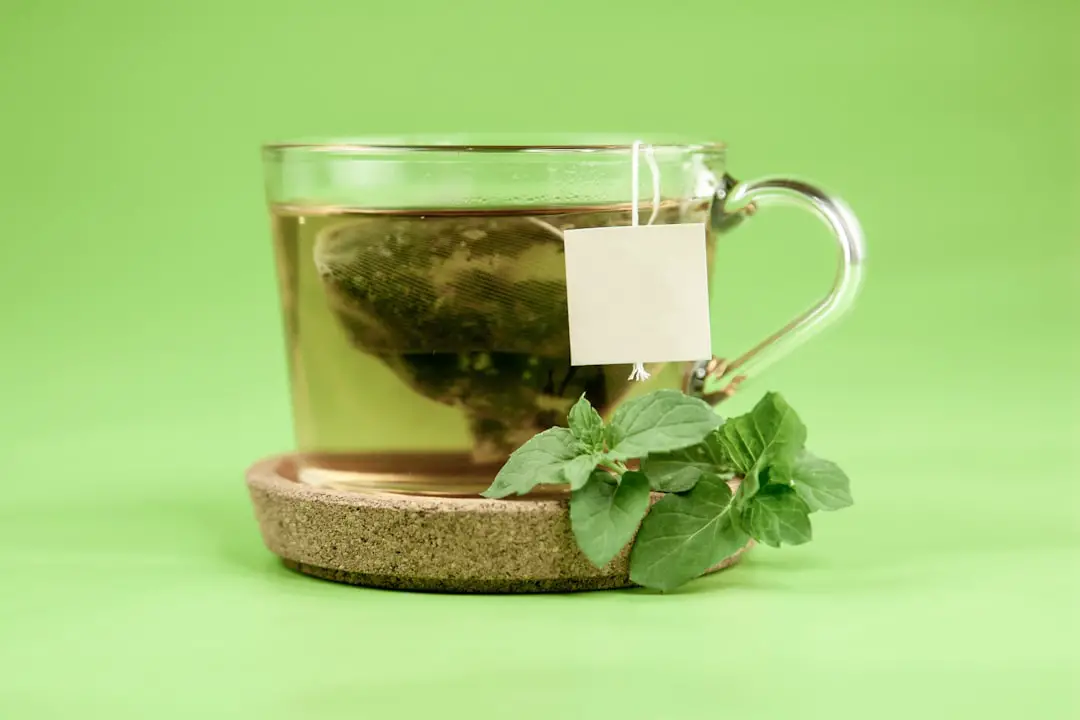
Well, there you have it — a full-bodied, flavor-packed, health-boosting journey through the world of loose leaf teas! From the antioxidant-rich green teas to the soothing chamomile and invigorating ginger, each cup offers unique benefits that can complement your lifestyle and wellness goals.
Why choose loose leaf tea? Because it delivers superior quality, richer flavor, and more potent health benefits than typical tea bags. Plus, it’s kinder to the environment and your palate. Remember the microplastic shock? That’s a big ❌ for bagged teas, especially those with plastic components.
Our top 10 picks are not just crowd-pleasers but health champions. Whether you want to energize your mornings with Assam Black or wind down with organic chamomile, there’s a tea here tailored just for you. And don’t forget — brewing is an art and a science. Mastering the right temperature and steep time unlocks the full potential of your tea’s health benefits.
A quick recap on pitfalls: Watch your caffeine intake if you’re sensitive, avoid oversteeping to prevent bitterness, and choose organic when possible to dodge pesticides. And always listen to your body — tea is a friend, not a foe.
So, are you ready to elevate your tea game? We’re confident that embracing loose leaf tea will not only delight your senses but also nurture your body and mind. Here’s to many mindful, healthful sips ahead! 🍵💚
🔗 Recommended Links: Dive Deeper and Shop Your Favorites
Ready to brew your perfect cup? Check out these trusted sources and products:
- Sencha Green Tea: Amazon | Walmart
- Assam Black Tea: Amazon | Walmart
- Tieguanyin Oolong Tea: Amazon | Walmart
- Silver Needle White Tea: Amazon | Walmart
- Ripe Pu-erh Tea: Amazon | Walmart
- Organic Chamomile Tea: Amazon | Walmart
- Organic Ginger Tea: Amazon | Walmart
- Organic Rooibos Tea: Amazon | Walmart
- Organic Hibiscus Tea: Amazon | Walmart
- Organic Peppermint Tea: Amazon | Walmart
Books to deepen your tea knowledge:
- The Tea Book: All Things Tea by Louise Cheadle & Nick Kilby — Amazon
- The Art and Craft of Tea by Joseph Uhl — Amazon
- Tea: History, Terroirs, Varieties by Kevin Gascoyne — Amazon
❓ FAQ: Your Most Pressing Tea Questions Answered
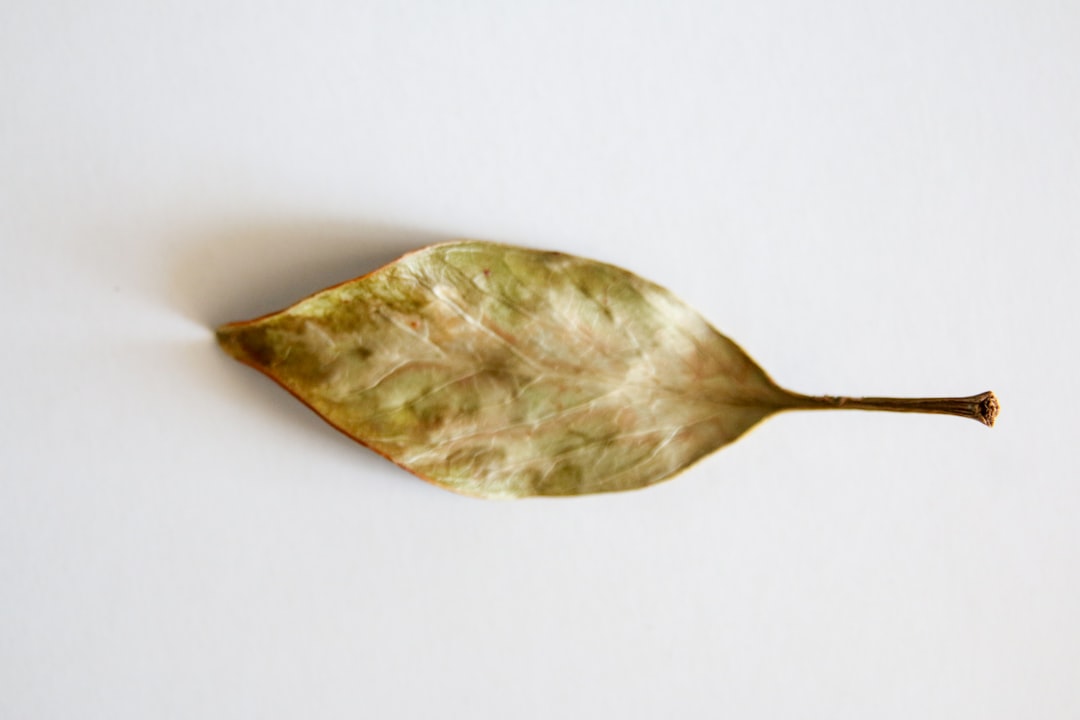
What are the health benefits of drinking loose leaf tea compared to tea bags?
Loose leaf tea generally contains whole or large pieces of tea leaves, which retain more antioxidants, polyphenols, and essential oils than the finely ground “dust” or “fannings” found in many tea bags. This means you get a richer flavor and more potent health benefits. Additionally, many tea bags contain plastic or other additives that can release microplastics or chemicals into your cup, as highlighted by Ochsner Health’s 2019 study on plastic tea bags. Loose leaf tea is also less processed, preserving delicate compounds like L-theanine, which promotes relaxation and cognitive focus.
Read more about “What Is Considered to Be the Best Tea? ☕️ Top 10 Picks (2025)”
How do I choose the right loose leaf tea for my specific health needs, such as anxiety or digestion?
Start by identifying your primary health goal:
- For anxiety and relaxation, herbal teas like chamomile or peppermint are excellent choices due to their calming properties.
- For digestion, ginger and peppermint teas are known to soothe the stomach and relieve bloating.
- If you want an energy boost, green or black teas provide moderate caffeine and antioxidants.
- For weight management, oolong and pu-erh teas may help boost metabolism.
Brands like Tiesta Tea categorize their blends by function — Energize, Slenderize, Boost Immunity, Relax — which can guide your selection. Also, consider flavor preferences to ensure you enjoy your daily cup!
Are there any loose leaf teas that are particularly high in antioxidants and which ones are they?
Yes! Green tea is famously high in catechins, a type of polyphenol antioxidant. White tea also boasts a high antioxidant profile due to minimal processing. Rooibos and hibiscus teas, though herbal and caffeine-free, contain unique antioxidants like aspalathin and anthocyanins, respectively. Pu-erh tea’s fermentation process develops distinct antioxidants beneficial for heart and gut health. Choosing organic loose leaf teas ensures minimal pesticide interference with these compounds.
Can drinking loose leaf tea regularly help to boost my immune system and reduce inflammation?
Absolutely! Many teas contain antioxidants and anti-inflammatory compounds that support immune function. For example, chamomile has anti-inflammatory and antimicrobial properties, while green tea’s EGCG (epigallocatechin gallate) is a potent immune booster. Hibiscus tea may reduce inflammation and blood pressure. Regular consumption, combined with a balanced diet and lifestyle, can contribute to a stronger immune system and lower chronic inflammation.
Are there any risks or side effects to drinking loose leaf tea regularly?
While tea is generally safe, excessive consumption can lead to caffeine-related issues such as insomnia or jitteriness, especially in sensitive individuals. Tannins in tea can inhibit iron absorption, so those with anemia should avoid drinking tea with meals. Also, some herbal teas might interact with medications or cause allergies. Always consult your healthcare provider if you have concerns.
How can I ensure the loose leaf tea I buy is safe and high quality?
Look for teas that are:
- Certified organic to avoid pesticides.
- Transparent about sourcing and ingredients.
- Free from artificial flavors, colors, and preservatives.
- Sold by reputable brands like Tiesta Tea, Gachi Tea, or Pukka.
Reading reviews and checking for third-party testing can also help.
📚 Reference Links: Our Sources for Your Sip of Knowledge
- Tiesta Tea Loose Leaf Collection — https://tiestatea.com/collections/all-loose-leaf-teas
- Ochsner Health: Cleanest Tea Brands for Better Health — https://blog.ochsner.org/articles/cleanest-brands-of-tea-to-drink-for-better-health/
- Everyday Health: 8 Teas to Drink for a Healthier Body and Mind — https://www.everydayhealth.com/diet-nutrition/diet/best-teas-your-health/
- Tea Brand Spotlights — https://www.teabrands.org/category/tea-brand-spotlights/
- Tea Brand Guides — https://www.teabrands.org/category/tea-brand-guides/
- Health Benefits of Tea — https://www.teabrands.org/category/health-benefits-of-tea/
- Herbal Tea — https://www.teabrands.org/category/herbal-tea/
- Specialty Blends — https://www.teabrands.org/category/specialty-blends/
Ready to sip your way to better health? Dive into our best loose leaf tea brands guide for more expert picks and tips!
